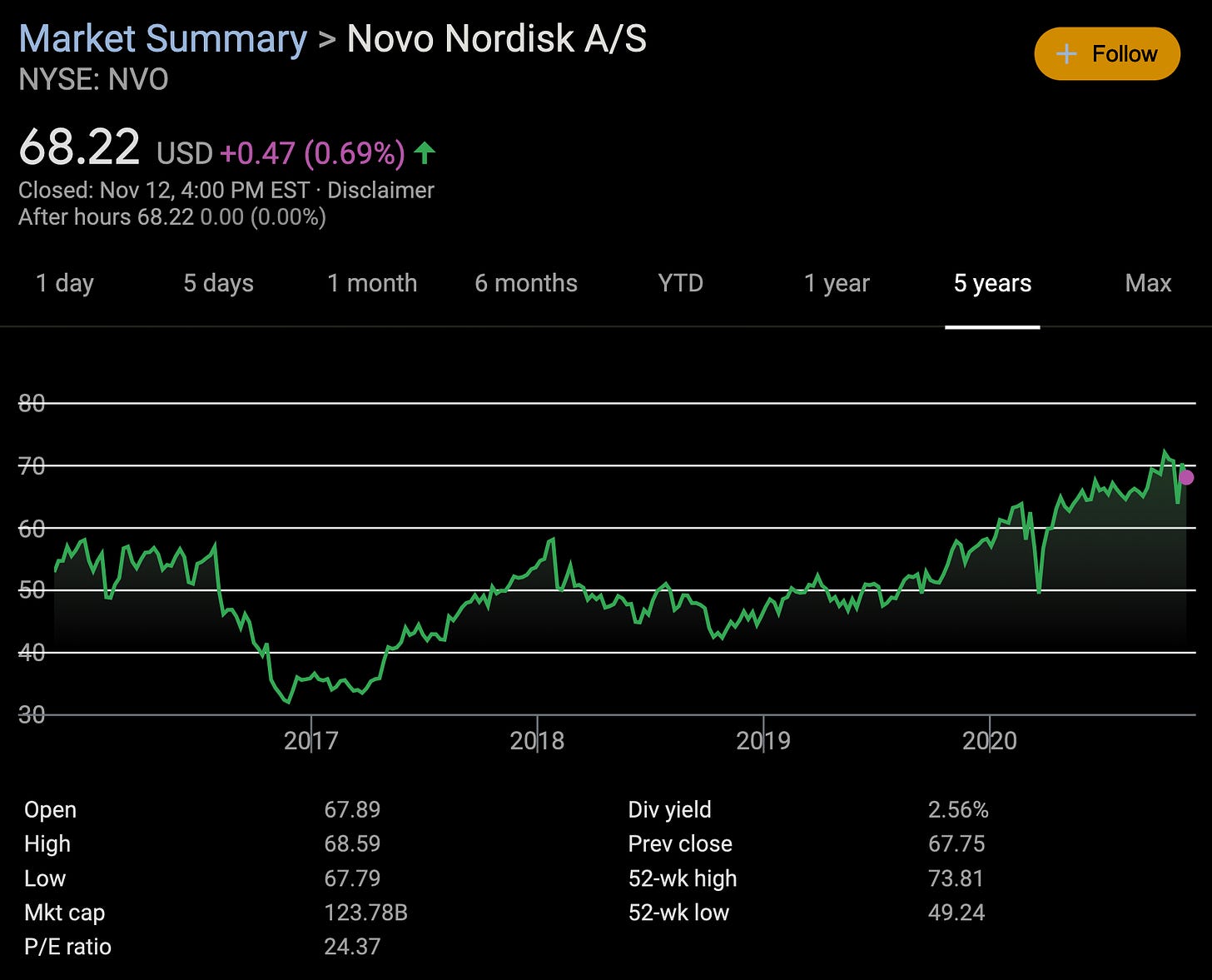In speaking with insiders from Novo Nordisk last month, a leading big pharma in diabetes/obesity, I learned that the company will start focusing a lot of its drug discovery attention on atherosclerosis, heart failure, and renal diseases over the next few years. This is interesting, given that we currently have really nothing to treat renal diseases (besides anti-hypertensive drugs), presenting a critical unmet need and untapped market opportunity. So it’s good for patients’ kidneys, good for business, and the area is ripe for scientific innovation.
With bold moves like the Corvidia acquisition this summer and the Emisphere acquisition last week, Novo Nordisk is both expanding and diversifying its existing diabetes/obesity portfolio into oral biologics and cardiovascular disease drugs, positioning itself to become the first global biopharmaceutical company exclusively focused on the cardiovascular/renal/metabolic (CVRM) sector (e.g., AstraZeneca has a CVRM division, but also oncology/immunology and many others). And we all know how difficult it is to compete with large firms that are truly focused on their specific area of innovation, especially in the long-term (think Apple)…
Yet, to curb your enthusiasm for Novo if only just slightly, remember that it is a well-known fact of the industry that many diabetes drugs are coming off-patent over the next few years, so you gotta ask yourself… is this innovation by necessity? In my opinion, yes and no — although it’s a pragmatic move, there’s still at least a few good years of solid runway left. Besides, these diabetes patent expiration concerns trace back to at least half a decade ago (since then, e.g., Novo’s Rybelsus hit the jackpot) and, as we’ve all seen, Novo stock has (on average) steadily kept climbing over the last 5 years:
Nevertheless, diabetes drugs coming off-patent should always be a valid concern when evaluating Novo’s core business model. Given how many type II diabetes drugs will be generics in a few years, of course it will be considerably more challenging (or necessary) to innovate in this space and prove better results than these generics, so although I wouldn’t rush to bet on new companies trying to enter the diabetes market, I would say that of all players, Novo is probably relatively safe, given the company’s intentions to diversify beyond diabetes/obesity (where they will likely continue maintaining a strong foothold and inertia) into new CVRM disease indications like atherosclerosis, heart failure, and renal diseases.
Taking the long-term view, given that the world’s aging population is rapidly rising (>65 year olds projected to double, while >80 year olds triple by 2050), and age being the #1 risk factor for cardiovascular disease manifestation, I would say going long on Novo Nordisk stock is probably about as safe and conservative as you can get (at least in traditionally volatile biotech stock market terms, even if your risk tolerance is on the lower end). Just don’t expect it to 6X on you like Zoom stock during the pandemic… rather, one very loose analogy may be to think of Novo stock like the biotech analog of a certificate of deposit (CD) — in fact, it may possibly even perform better for you over the years than the low interest rates that banks are offering today [but please don’t take this suggestion literally because Novo stock is obviously not FDIC-insured :)]. Or, of course, Novo may end up never actually finding its footing in the new market areas they’re looking to target, its diabetes business may come under seige, etc. which might paint a very different picture of the company’s future. But that’s the beauty and peril of the complex and dynamic biotech stock market... you can just never know anything for sure (until it happens).
If you enjoyed this post, sign up now so you don’t miss the next issue:
In the meantime, tell your friends!
P.S. Not investment advice. Read the Liability/Disclaimer subsection to learn more.




